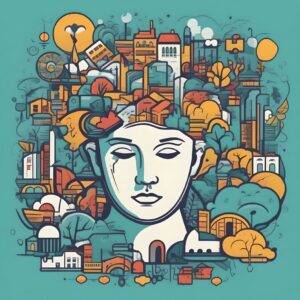In India, about 2-5% of the population suffers from some mental or behavioral disorder, and about 1% have severe mental disorders that require urgent care. Homelessness is a grave issue among patients with serious mental illnesses.
Also, there are about 400,000 people with mental illness in India. People with severe psychiatric illnesses like schizophrenia and bipolar disorder will be mentally disabled by their condition and require immediate medical attention. Many psychiatric rehabilitation and recovery centers provide Schizophrenia treatment.
Psychiatric rehabilitation may aid in getting life back on track after treating mental illness. Schizophrenia treatment and other treatment for mental health disorders include two aspects. They are the actual treatment and psychiatric rehabilitation. Real therapy emphasizes reducing the associated mental illness of the patient.

Unlike instances of physical illnesses or diseases where surgery or medication can provide an absolute cure, mental disorders need medicine along with some other types of treatment.
The treatment given to the patient depends primarily on their diagnosis, the state of severity, and their emotional and physical condition. A person may require a combination of some forms of treatment such as therapy, hospitalization, medication, treatments for brain stimulation, counseling, and mental health rehabilitation.
Mental health rehabilitation is a kind of treatment that aims at helping the patient go back to an optimal level of malfunctioning and to attain life goals. This is accomplished by giving social, medical, and psychological input.
Furthermore, there is no strict distinction between mental rehabilitation and treatment. Every person with a mental illness does not require rehabilitation. For some patients, medication or some combination of medication along with therapy is enough to bring them back to a typical or functional life.
Rehabilitation is an essential segment of the treatment cycle for other patients. In instances of disorders like mental retardation, a procedure of rehabilitation of psychiatric patients is being followed to help patients gain skills required for daily functioning of life.
The process involved in rehabilitating psychiatric patients focuses on helping the patient develop the intellectual and social skills necessary to incorporate with mainstream society. It enables the patient to find a meaningful part for themselves, be it at work or home. It also assists the patient by offering opportunities, obstructing discrimination and stigma.
Psychiatric rehabilitation centers are intended for long-time mentally ill patients. Mental health illness is anticipated to deprive a person of the required skill set to be completely supportive and contributive to a community.
Besides, a person has to lead a life with the stigma associated with having a health problem. This may force the person to dissociate and retreat from others.
This is why psychiatric rehabilitation centers play an essential role in caring for patients with poor mental health. Some of the services provided by these centers are enumerated below.
1. Readiness determination
This service includes a systematic assessment to improve the patient’s contentment and competence (a perceived requirement for role alteration), obligation to change, interpersonal closeness, and self and environmental awareness. For patients who do not respond or the ones ineligible to pass this assessment, suggestions for readiness development would be given.
2. Goal-setting
This part of the service involves the professional psychiatrist working closely with patients with illnesses like schizophrenia to identify the patient’s basis for valued roles and explain several patient preference environments.
It is complete when the patient declares their role of option and a particular time frame for attainment. This comes to an end with an acceptance between the patient and the practitioner regarding collaborative attempts toward the goal or aim.
3. Resource and functional assessment
It establishes the degree of present patient competence in addressing the demands of their favored roles of value and surroundings. It also involves evaluating the accessibility and attainability of environmental resources the patient may need to have mastered that environment.
4. Skill and support development
This part of the program will include a large part of service delivery. It is also focused on developing skills and building resources required for patient achievement in their chosen environments.
5. Discharge planning
This happens when the patient has successfully attained the overall goal of psychiatric rehabilitation, has linked with required support givers, and no longer needs rehabilitation intervention to maintain their purpose.
This service will also withhold a monthly contract with the patient for one year. Additionally, it also arranges for providing immediate service if required by the patient to maintain a valued role or part.
6. Support services
This service is provided to aid therapies like schizophrenia treatment all through the entire process of rehabilitation. It also comprises reassurance to the patient of optimistic regard, assurance of potential, and assistance to promote raised independent functioning.











